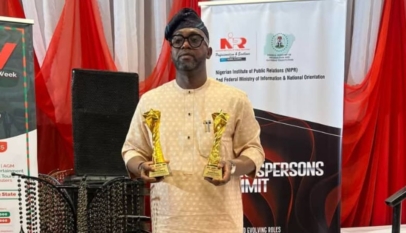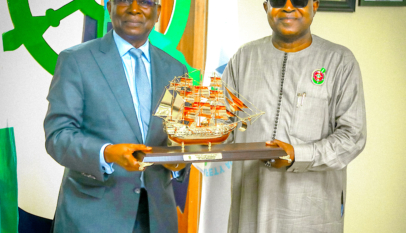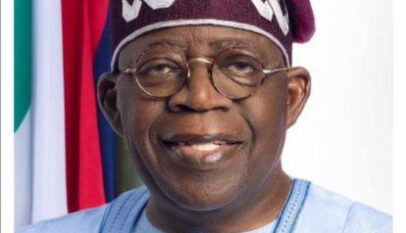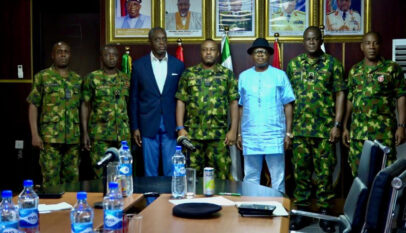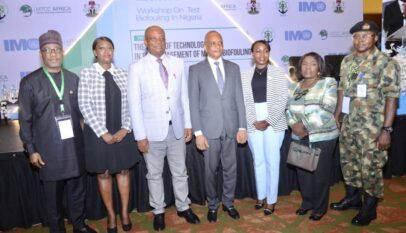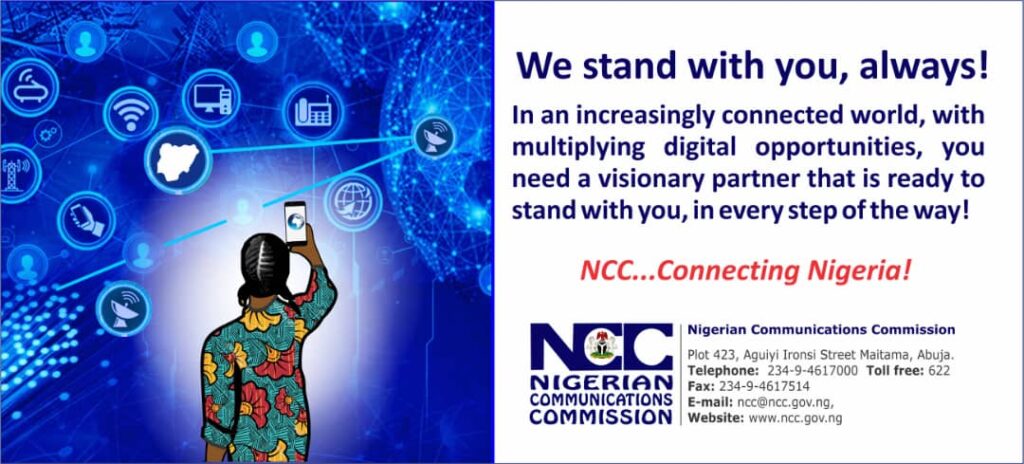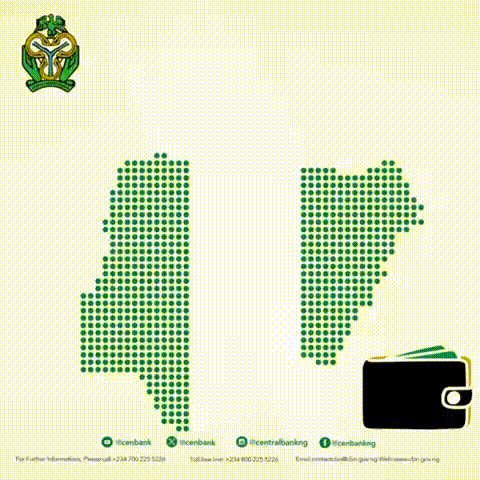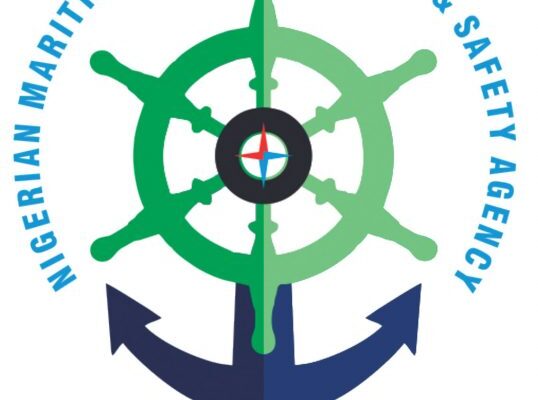
As Nigeria awaits blue economy take off, NIMASA disburses $720m CVFF, others
Shipowners assure NIMASA of proper utilisation of Cabotage Fund
Omolola Ajobiewe
The Nigerian Maritime Administration and Safety Agency (NIMASA) has noted that while the country awaits a blue economy, a cohesive national policy to fully kick into gear, the country must for a starter become blue ambassadors, advocate for it.
Speaking at the Centre for Financial Journalism, the Bullion Lecture in Lagos, NIMASA Director-General, Dr Bashir Jamoh said, “There is the need for total rethink of our waters, from a ceremonial to a commercial view, events such as Argungu Fishing Festival and others must be redesigned and repackaged from the standpoint of the blue economy.
The theme of the lecture was: “Banking on Blue Economy for Nigeria’s Economic Development.”
“We must intentionally work to banish sea blindness amongst Nigerians, ensure shipyard expansion for shipbuilding and others,” he said.
Jamoh said that NIMASA was driving Nigeria blue economy through the disbursement of the $720 million CVFF, deployment of modulator floating dock, capacity building of seafarers, wreck removal, underwater marine cable regulation and management and others.
Dr Mkgeorge Onyung, the President of the Shipowners Association of Nigeria (SOAN) at the forum also assured of members proper utilisation of the Cabotage Vessel Financing Fund (CVFF) when disbursed by NIMASA.
Onyung described the members of the association as seriousminded people in the business of shipping.
“We are not taking it as a grant, but a proper loan.
“The point is, we from SOAN, are a group of genuine ship owners. There is no member of our association that does not have a ship.
“Our members are already working with International Oil Companies and we adhere to international standards and rules. We are ready and responsible to take this facility.
“When one ship berths in our water, you will see that clearing agents and several others will be part of the business,” he said.
He appreciated the Federal Ministry of Transportation and NIMASA boss for the CVFF.
On the issue of blue economy, Onyung said that it was not a new nomenclature but had been in existence.
“Just that the United Nations drew attention to it because of the increasing poverty that was going on across the world.
“When God created the oceans, he put 700,000 species inside the water. The number of creatures in the ocean is big enough to feed us, we are just 7.7 billion. God buried all the treasure in the ocean.
“Today, we have just found a cure for sea blindness, Jamoh just told us that sea blindness is a disease that is inflicting the maritime industry and the solution to that is maritime knowledge which he has impacted on us.
“Telling us to learn more about the ocean so that we can benefit from it and we need to tap into the benefits of the ocean,” he said.
He noted that another part of blue economy which had to do with ferries was that the need to have ships that could take 450 passengers at ago to boost water transportation.
“For us to sustain the tourism and ferry transportation and make Lagos a sea transport city, we must look at the future.
“We are talking about sustainability of the blue economy, we have to be deliberate about this, so in building ports we need to ensure that free entrance and exit of ships,” he said.
Also speaking, Mrs Jean Chiazo-Anishere, Chairman of occasion, said the country successfully bank on the blue economy to drive economic growth.
“Nigeria is blessed with vast coastline and abundant marine resources that can be harnessed for economic growth and development.
“It is just not for us to tap on the ocean resources, we need to ensure that it is sustained otherwise, we will not have anything to tap from.
“The sustainability of the blue economy is very key. It represents a significant opportunity for Nigerians to diversify it’s economy and create other ways for job creation and revenue generation by investing in things such as fisheries, aquaculture, maritime transport tourism and others.
“To fully unlock all the potential of the blue economy, it’s essential that we adopt the strategic approach,” she said.

